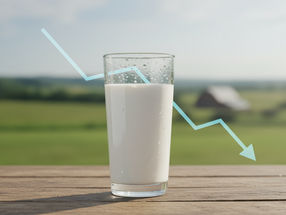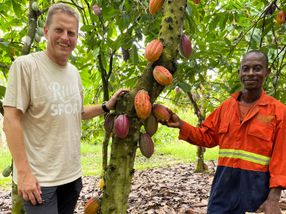Food Carbon Footprint Index 2018
Study reveals annual CO2 emissions for 130 nations, plus the amount citizens could reduce their carbon footprint by switching to a vegan diet
Advertisement
- Argentina emits the highest levels of CO2 per person due to animal product consumption, at 305.81 kg of CO2 per year. This means that Argentinians can make the biggest impact to the environment by switching to a plant-based diet.
- Beef is the worst food product for carbon dioxide emissions, with worldwide beef consumption contributing on average 374 kg of CO2 per person, per year.
- United States is ranked #6 in the index, emitting on average 240.11 kg of CO2 per person annually for animal products and 9.52 kg of CO2 per person annually for non-animal products.
Intelligent nutrition retailer nu3, has released a study comparing carbon dioxide emissions for 130 countries worldwide based on dietary habits. With the environmental impacts of humanity's eating preferences at the forefront of discussion, the nutrition specialist wanted to further the debate by looking into the food industry’s carbon footprint, directly comparing different diets in terms of carbon dioxide emissions. The study reveals which countries could significantly reduce their carbon footprint by switching to a plant-based diet, as well as which food types generate the highest carbon dioxide emissions.

Photo by Lily Lvnatikk on Unsplash
Using data from the Food and Agriculture Organization of the United Nations (FAO), the study compares figures for each country on the following topics:
- The quantity of 11 types of food supplied for consumption. Seven of these are popular animal products, such as beef, chicken, and milk, including cheese. Non-animal products include soybeans and nuts, including peanut butter.
- The annual carbon dioxide emissions for each food type, per person.
- The annual CO2 difference between 1 kg of animal product and 1 kg of non-animal product. This figure indicates how many kg of CO2 an individual could reduce their carbon footprint by per year if they switched from an animal to a non-animal diet.
The study began by analysing data from the FAO to determine the quantity of produce supplied for consumption of 11 food types in 130 countries. This included seven animal products (pork, poultry, beef, lamb & goat, fish, eggs, and milk including cheese) and four non-animal products (wheat and wheat products, rice, soybeans, and nuts including peanut butter). Next, using the worldwide average CO2 emission figures for supplying each food type for consumption, the annual quantity of CO2 per capita for each product could be determined. In this way, an average annual CO2 emission per capita for animal and non-animal products could be found for each country. Finally, the difference between these average figures was calculated, revealing the kg of CO2 a citizen in each country could reduce annually by replacing 1 kg of animal product with 1 kg of non-animal product.
“Veganism is an increasingly mainstream lifestyle choice, as demonstrated by our vegan product revenue doubling in the last year alone. With this study revealing how switching diets could drastically reduce our carbon footprint, it’s becoming increasingly harder to ignore the benefits of moving to a plant-based diet, both for our health and our planet.” says Robert Sünderhauf, CEO at nu3. “For those who find the idea of completely giving up meat a challenge, this index highlights some realistic and achievable alternatives. For instance, healthier fish and poultry have a far lower CO2 emission rate than fattier red meats such as lamb and beef, while eggs produce significantly lower emission rates than milk products and cheese. All evidence points towards a mainly plant-based diet, with lean animal-based protein if needed, to help both our bodies and our environment prosper.”
The full results of the study can be found on the right side of this article.


































































